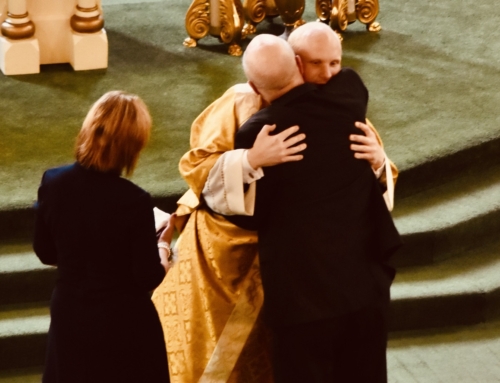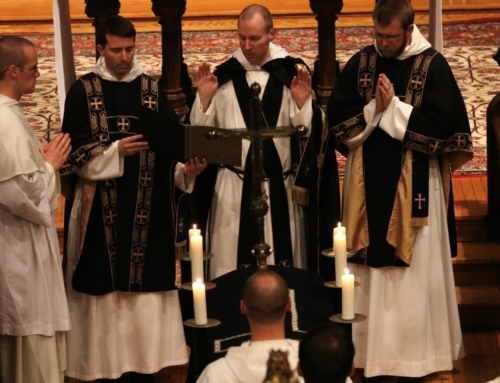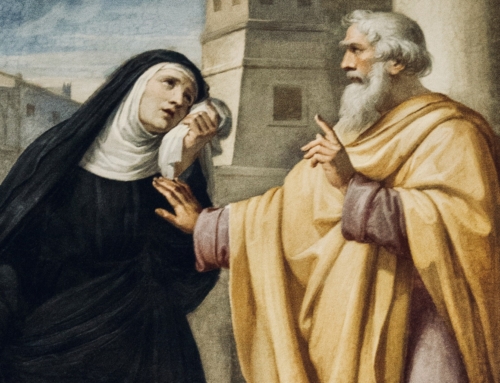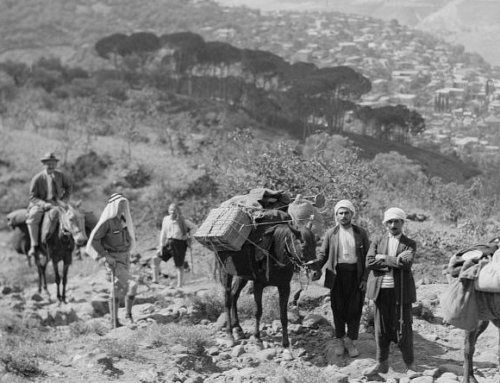Where, O death, is your victory? Where, O death, is your sting?
—1 Cor 15:55
Christ has conquered death and put it to death. So why do we still die?
No fear makes the heart quail quite like the fear of death. Every other phobia stems from this fear, and rightly so. In death we find separation and the great unknown. Dylan Thomas captures this feeling forcefully:
Do not go gentle into that good night
Rage, rage against the dying of the light.
In this sentiment lies the base frustration we face: death with its separation from loved ones, its cessation of the great good of life, and its departure from all the joys and genuine goods of the world seems utterly absurd. The looming spectre of death casts its dark shadow over all human actions, even the writing of Scripture. The Book of Ecclesiastes begins with the vanity of all things and ends with a poem about death.
And yet, “God did not create death, nor does he rejoice in the destruction of the living, for he created them to have being”, and “to have it in abundance” (Wis 1:13; John 10:10). Death came to exist on account of man’s sinfulness. By departing from the Lord our Life, by turning our backs on him in little or great ways, we won for ourselves the great evil of death, as natural and fitting of a punishment for sin as eternally lying in piles of manure is for the flatterers in Dante’s Inferno who on earth had spewed forth manure from honeyed lips. Or better yet, as someone who steps off the side of a cliff fittingly and inevitably falls to the bottom, save for some extraordinary occurrence, so by our sin, we fling ourselves headlong from the headlands of God’s eternal life into the darkness of death.
Enter Christ: the extraordinary and unexpected occurrence that lifts us back up. Christ conquers death by death. He, by dying reroutes death to make it not merely punishment for sin but, to those who follow him, the path from life to Life, grace to Grace, glory to Glory. In Christ, what was a burden and a punishment becomes a gift and a doorway to greater joy. Christ’s conquest of death does not mean that we no longer die, for death remains a fitting punishment for the sins we still commit. Rather, Christ’s conquest of death means that death itself is frustrated from our utter destruction, its natural end. Instead Christ forges out of death the passageway to the hand of God, where no torment can touch us (Wis 2). He will lead us down this path one day, in his perfect time and not a moment before, provided that we place all our hope and trust in him.
We still fling ourselves headlong off the cliff time and time again, and yet, the Grace of God, like a great eagle, swoops in whenever we call upon his mercy and it raises us up out of fire and peril to his eternal eyrie on high. Death, our destruction, has then been made a gift to man. And this is Easter’s joy.
*
Fear no more the coming dark of night.
The Son at dawn draws you into His day.
Dance ye with joy and rise into His light
Wise men of old longed to see this sight
They, prophets, wrote; listen to what they say:
Fear no more the coming dark of night.
John at His coming reckoned him aright
Behold the Lamb who takes man’s sins away
Dance ye with joy and rise into His light.
His virgin Mother knew no earthly fright.
Since she saw clearly in His brilliant ray,
Fear no more the coming dark of night.
The Magdalene declared His glory bright,
who sought in love to find Him where He lay:
Dance ye with joy and rise into His light.
And you, good Christian, though you suffer plight,
Though tribulation haunt your every day,
Fear no more the coming dark of night.
Dance ye with joy and rise into His light.
✠






